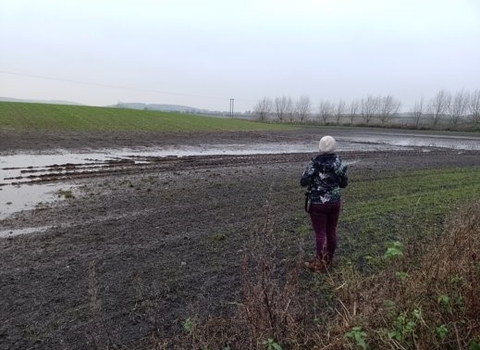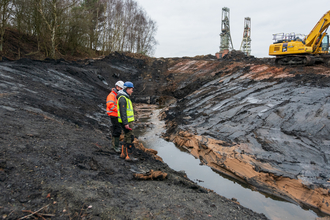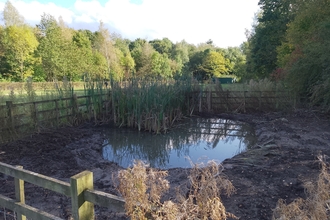Helping our rivers across Sherwood
This project is a partnership between the Nottinghamshire Wildlife Trust (NWT) and Severn Trent (ST) to deliver a programme of essential measures to improve the water environment in three rivers within the Idle Catchment, for which NWT are the Catchment Hosts. The rivers are Rainworth Water, Vicar Water and the Bevercotes Beck.
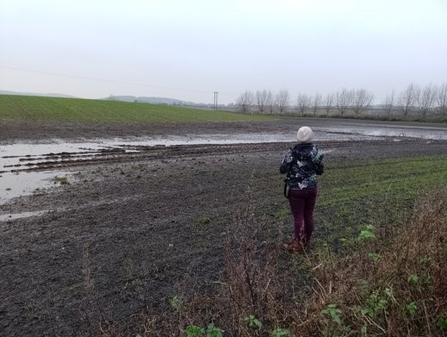
Lena inspecting the Bevercotes Beck floodplain for the 3 Rivers project
Background to the Project
Rainworth Water, Vicar Water and the Bevercotes Beck are included in the project covering an area from Mansfield to the A1 south of Retford with the A614 at its heart.
There are many pressures on wildlife and habitats in the Sherwood sub-catchment of the Idle Catchment, including:
- Channel modification
- Poor water quality (both chemical and physical)
- Loss of habitat through vegetation clearance
- Low flows
- Barriers to fish passage
- Invasive non-native species
The three rivers suffer from low flow conditions and loss of water in parts of their length into the underlying sandstone. Consequently, the rivers are in poor or only moderate ecological condition and so are failing to meet WFD objectives. These rivers have been identified as a high priority for ST to address these problems, as part of a wider programme within their area of operation.
Preparatory work has already been undertaken by AECOM on behalf of Severn Trent to consider a number of options for the rivers, and this has led to the selection of some potential preferred options for each river.
Project milestones
The construction phase of the project will address the issues of:
- Low flows due to leakage from the riverbed
- The need for enhancement of channel form and location
- Removal of structures that compromise channel integrity and reduce fish passage
The aims of this project are:
- To address the low flow issues and to prevent water losses as far as is feasible
- To increase the ecological resilience of the watercourses, through a wide range of measures
Project updates
A number of outputs have been completed as highlighted in the infographic below and also via the web pages below per river.
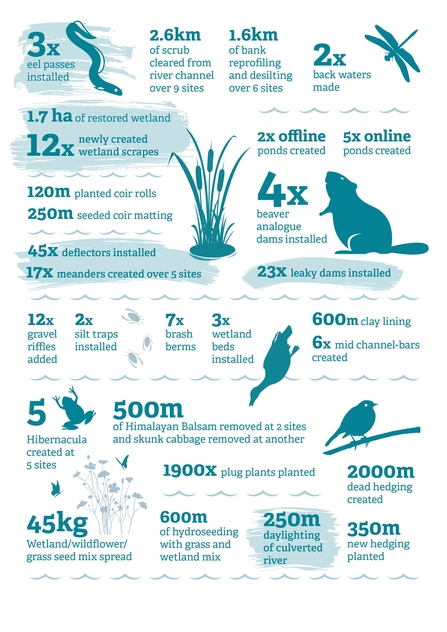
News
Catch up with the latest major stories from the Three Rivers project.



